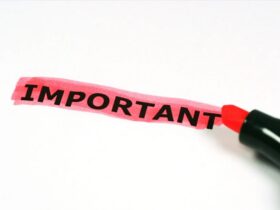Anonymous note-taking allows people to write freely without fear that their private thoughts will be exposed. However, not all anonymous note services are equal, when it comes to protecting user privacy.
Choose services carefully
The first step in anonymous note-taking is choosing your service carefully. You want to pick an application that employs encryption to protect your notes, has a track record of shielding user data, and preferably keeps minimal logs. For example, end-to-end encryption ensures that notes are encrypted locally on your device before syncing to the company’s servers. This prevents company employees and potential hackers from accessing your notes.
Avoid tying your identity to your notes in any way. Some tools assign usernames or allow social sharing of notes, which enables connections to be made back to you. Opt for a private journaling approach to remain nameless. Also, beware of note services that are based in countries with restrictive data privacy laws.
Manage access carefully
Be extremely careful about which devices you access your anonymous notes on. Accessing notes on a shared family computer or your work laptop introduces the risk that someone else will happen to your private writings. Ideally, use your mobile phone or tablet that only you know the lock code for. Never save login credentials on devices others have access to.
Likewise, be cognizant of surfing the web while logged into your anonymous note account on public Wi-Fi. Doing so could potentially expose your browsing along with your account credentials to snoopers. Employ a reputable VPN for an added layer of privacy.
Self-edit over time
Periodically reread old entries while using an anonymous note service and edit anything detailed that could enable self-identification later on. As more time passes and context evolves, what may have seemed generic initially could provide hints that allow identification by someone with more background knowledge. Self-edit older posts to reduce this potential over time.
Likewise, avoid indexing thorough details related to current events in your anonymous journals and diaries. Retrospectively, commentary related to major news events could make it easier to pinpoint authors and date ranges of writings if later revealed. Keep the description of current affairs high-level.
Manage online activity carefully
Be aware that your activity while accessing your anonymous notes could potentially be logged by the service or your device. Usage logs that show repeated access from the same IP address where you live or work could enable others to deanonymize your writings. Employ a reputable VPN while accessing your notes to prevent easy IP tracing. Restrict account access only while on secure private networks to avoid usage footprints.
Can we make notes private? Likewise, if you ever quote your anonymous writings online under other pseudonyms or accounts, that correlation could be discovered over time, which compromises anonymity. Never directly quote or cite your anonymous notes publicly. Keep all associated accounts fully siloed from one another to remain nameless across platforms. Anonymous note-taking provides a valuable outlet for privately recording thoughts and venting emotions without fear of exposure. However, true anonymity requires vigilance around access controls, and usage patterns, including specifics and correlation across accounts.






